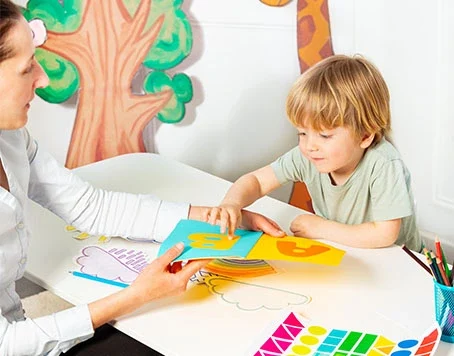In today’s ever-evolving landscape of pediatric developmental care, parents are more empowered than ever to be active partners in their child’s therapy journey. ABA Therapy (Applied Behavior Analysis) remains one of the most effective, evidence-based approaches for children with autism and related developmental conditions. But the success of therapy doesn’t rely on the therapist alone. It’s a collaborative process between the applied behavior analysis therapist, the child, and the family. When parents and therapists work in sync, outcomes improve significantly. Here’s how you can optimize that relationship for the best results.
Understand the Role of the ABA Therapist
An applied behavior analysis therapist is not only a trained professional but also a consistent figure in your child’s developmental journey. They are skilled in breaking down complex behaviors, creating structured learning environments, and implementing reinforcement strategies that promote positive change. Understanding their goals and methods helps you align with the therapy plan and contribute meaningfully at home.
Maintain Open and Consistent Communication
Regular communication between parents and the ABA therapy specialist ensures that everyone stays aligned. Discuss your child’s behavior outside of sessions, what improvements you’re noticing, what challenges persist, and any environmental triggers. This dialogue helps the therapist tailor strategies that integrate smoothly into your child’s daily routine, both at home and in therapy settings.
Reinforce Therapy Techniques at Home:
Consistency is critical in ABA Therapy. What happens during a session must be reinforced beyond clinic hours. Whether it’s using a specific prompt, reinforcing a skill with a reward system, or practicing social interactions, your involvement solidifies learning. Ask your therapist for practical tools and guidance on how to incorporate these strategies into everyday activities, like mealtime, playtime, or bedtime routines.
Participate Actively in Goal Setting:
Goal setting should be a collaborative process. Make sure to attend meetings where therapy plans are discussed, and express what’s important to your family. Whether your focus is on improving communication, enhancing attention span, or reducing challenging behaviors, clear and mutual goal alignment increases therapy effectiveness.
Respect Boundaries and Trust the Process:
While parental involvement is crucial, it’s equally important to respect the therapist’s expertise. Therapy is a structured, data-driven process that evolves over time. Trust that progress, although sometimes slow, is built on small, measurable milestones. Avoid rushing results or introducing conflicting strategies that may disrupt consistency.
Track Progress and Celebrate Wins:
Tracking your child’s progress, even the small wins, is essential. Celebrate when your child initiates communication or follows instructions independently. These moments are markers of growth and serve as motivation for both the child and the family. Share these milestones with the therapist to maintain morale and adjust goals as needed.
Be Patient, Yet Persistent:
Behavioral changes take time. Stay persistent in reinforcing strategies, even when progress feels slow. Your calm consistency and willingness to collaborate with your therapist create a stable, supportive environment that fosters meaningful change over time.
FAQs
Results vary by child. Some show progress within weeks, while others may take months. The key is consistent reinforcement at home and therapy sessions.
In many cases, yes. Observing sessions can help you understand techniques and replicate them at home. Always confirm with your therapy center.
Look for accredited centers with Board Certified Behavior Analysts (BCBAs), personalized programs, and parent-involved approaches.
It’s normal. ABA plans are regularly modified based on the child’s responsiveness. Stay engaged with the therapist for timely adjustments.
Why Choose Hope AMC for ABA Therapy?
At Hope AMC, the approach to ABA Therapy is holistic, family-centered, and evidence-driven. Our team of certified therapists works closely with parents, caregivers, and educational professionals to deliver customized therapy plans. With a strong emphasis on early intervention and measurable outcomes, we create a nurturing and structured environment that supports lasting change. From initial assessments to goal-focused sessions, every aspect of our program is designed to empower both the child and the family. If you’re looking for compassionate care rooted in scientific excellence, Hope AMC stands as a trusted choice in the region.
Ready to Start Your Child’s ABA Journey with Expert Support?
Partner with a team that values your role as much as your child’s progress. Contact us today to schedule a consultation, learn more about our personalized ABA Therapy programs, and take the first step toward meaningful, measurable change.
Schedule an appointment today!


